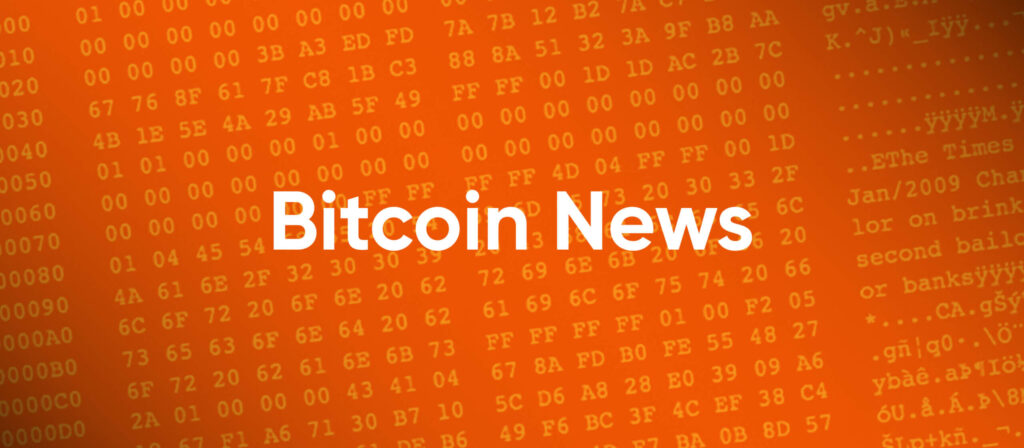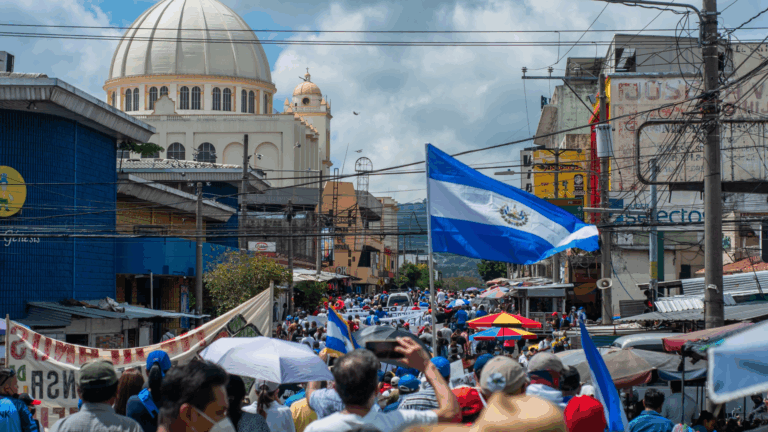The Financial Freedom Report is a newsletter focusing on the role currency and banking play in the civil liberties and human rights struggles of those living under authoritarian regimes. We also spotlight new tools and applications that can help individuals protect their financial freedom.
Good morning readers,
Depending on your time zone, Bitcoin’s fourth halving will take place tomorrow or Saturday at block height of 840,000. Here’s a great 101 from Andreas Antonopolous on the basics of the halving, why it is important, and what he expects to happen as a result of Bitcoin issuance being cut in half. HRF has a special announcement planned for this moment so definitely watch this space.
This week in Thailand, officials are giving away 500 billion baht ($13.7 billion) to 50 million Thai citizens through a mobile app linked to citizens’ IDs. Unbeknownst to the population, this digital cash comes with stringent spending restrictions and doubles as an experimental launch of their retail central bank digital currency (CBDC).
Meanwhile, Hong Kong made pivotal regulatory shifts, approving the region’s first Bitcoin ETF and signaling a departure from mainland China’s more stringent approach to regulation. In Paraguay, officials have reversed their stance on Bitcoin mining, now viewing it as an opportunity to leverage surplus energy to help advance economic activity in the country. Plus, an event hosted by the Human Rights Foundation (HRF) and Reuters in London highlighted the potential of Bitcoin in assisting journalists, activists, and nonprofits with their humanitarian work.
We end with a powerful keynote speech delivered by Natalie Smolenski, a senior fellow at the Bitcoin Policy Institute, during which she emphasized peer-to-peer (P2P) interactions as the basis of civil society and human rights. She champions peer-to-peer technologies as critical tools in resisting totalitarianism.
Now, let’s jump right in!

Thailand | Digital Cash Handout to Boost CBDC Adoption
With Thailand’s economy lagging behind most Southeast Asian countries, Prime Minister Srettha Thavisin unveiled a new plan to spur economic growth: giving 50 million Thai citizens 10,000 baht ($275) each via a digital wallet. This digital cash doubles as a pilot for the Thai central bank digital currency (CBDC), known as the “digital baht.” The CBDC will be distributed via a “blockchain-based mobile wallet” linked to citizens’ IDs and be subject to significant restrictions. For example, the digital cash can only be spent locally within a citizen’s residential area, is restricted to purchases of certain items and with registered vendors, and will expire six months upon receipt. Critics warn that the experiment might not only fail to stimulate economic growth but also lead to higher inflation and national debt, placing a further burden on citizens’ financial well-being. It will also grant the Thai government greater surveillance and control over individuals’ financial activity.
Tunisia | Citizens Turn to Debt as Cost of Living Soars
The cost of living continues to rise in Tunisia as inflation reaches 7.5%, resulting in a threefold increase in prices for essential food items. A 65-year-old retiree echoed millions when she said, “My pension doesn’t cover my needs.” As a result, citizens are piling on debt to survive. Tawfiq Katro, president and director general of the National Retirement and Social Security Fund, reports on this alarming trend, stating that “the percentage of applications for personal loans has reached 98% compared to other loans for cars and housing.” The staggering increase in borrowing comes amid stagflation in the economy (characterized by stalled economic growth coupled with rising prices), highlighting that Tunisians must take unwanted risks just to feed their families. To save the economy, the Tunisian government requested 7 billion dinars ($2.24 billion) from the central bank for its budget deficit. However, this risks further devaluing the dinar and diminishing any purchasing power Tunisians have left.
Hong Kong | Initial Approval for Bitcoin ETF
Having lost much of its power as a global financial hub post-pandemic, Hong Kong is attempting to restore its prominence — this time, by giving initial approvals for a Bitcoin Exchange Traded Fund (ETF). This marks a significant departure from mainland China’s stricter regulatory stance towards Bitcoin. According to Bloomberg Analyst Eric Balchunas, Chinese investors are “desperate to buy things that are not linked to their own economy”; they view the Bitcoin ETF as an attractive alternative to China’s tightly regulated investment landscape. Even Chinese asset managers are leveraging their Hong Kong subsidiaries to apply for Bitcoin ETFs. While Bitcoin ETFs may not offer the same degree of financial autonomy as self-custody Bitcoin, they provide a familiar, convenient, and accessible way for cautious investors to gain exposure to Bitcoin as an asset class. With China having launched its central bank digital currency, the approval of a Bitcoin ETF in Hong Kong could signal a step toward greater Bitcoin adoption in the region.
Ethiopia | Currency Devaluation to Secure IMF Loan
Africa’s second most populous country defaulted on its debt last December. It is now considering a currency devaluation to secure a $3.5 billion loan from the International Monetary Fund (IMF). If approved, this would mark the eighth arrangement with the organization. Ethiopia aims to align the official and black market rates of its currency, the birr, which currently stands at a two-to-one ratio, with IMF recommendations favoring a flexible exchange rate. While a currency devaluation (expected to range between 15-50%) may facilitate IMF funding, it poses the risk of exacerbating Ethiopia’s existing 26% inflation rate and increasing the burden of foreign currency debt. Following a two-year civil warthat resulted in a food crisis, widespread poverty, and mass atrocities, such a measure would further strain the livelihoods of already vulnerable Ethiopians in an authoritarian environment.
Paraguay | Regulatory Shift on Bitcoin Mining
Paraguay is reassessing its proposed Bitcoin mining ban and exploring its potential benefits. A treaty dating back to 1973 between Paraguay and Brazil mandates that any surplus energy from the Itaipú hydropower dam must be sold to Brazil at a subsidized rate and cannot be exported elsewhere. For many Paraguayans, this challenged their national sovereignty. Senator Salyn Buzarquis is now advocating for the Paraguayan Ministry of Industry to investigate the economic advantages of selling excess energy to Bitcoin miners instead. Buzarquis points out that 45 licensed miners are projected to generate $48 million for the National Electricity Administration (ANDE) by year-end, expecting to reach $125 million by 2025. “This flow of funds is what is going to save ANDE from going bankrupt; to be able to invest more in infrastructure and not to raise the rate for Paraguyans,” Buzarquis asserted.

Sparrow Wallet | Adds Whirlpool Compatibility Over Soroban
The latest update to the self-custody Bitcoin wallet, Sparrow, introduced various changes and enhancements, including compatibility with the Whirlpool protocol over the decentralized Soroban network. This integration provides Sparrow users access to Whirlpool’s coinjoin technology, which obscures transaction histories, thereby improving the privacy of Bitcoin transactions — a critical feature for activists and vulnerable populations under surveillance states. Additional improvements include accelerated server connections through cached fee rate estimates and heightened security measures, improving overall wallet security and privacy. HRF is delighted to see the progress of Sparrow, a previous Bitcoin Development Fund grantee.
Mi Primer Bitcoin | 2024 Student Workbook
The educational initiative Mi Primer Bitcoin shared its “Bitcoin Diplomado 2024” workbook, a resource designed to empower students worldwide with Bitcoin knowledge. Mi Primer Bitcoin is an open-source project that began in Central America and has grown to serve over 25 educational initiatives in more than 15 countries. The workbook aims to provide comprehensive knowledge on Bitcoin and financial systems, covering the history of money, the rise of various currency technologies, and how to use Bitcoin and Lightning in people’s daily lives. The project emphasizes values such as openness, independence, and community-led education as it expands globally. Mi Primer Bitcoin is supported by a “Node Network” of individuals and volunteers who help translate the material to increase its accessibility and global impact.
Ben Perrin | Bitcoin Educational Resources in Spanish
Renowned Bitcoin educator Ben Perrin (a.k.a. BTC Sessions) is expanding his global impact by launching Spanish content on his educational YouTube channel. He released eight videos covering foundational topics such as setting up a Bitcoin wallet, making Bitcoin transactions, managing seed phrases, using the Lightning and Liquid Networks, creating a Nostr account, and exploring different hardware wallets to secure your Bitcoin. Viewers can expect the release of two additional videos per month. These comprehensive educational videos hold the potential to equip Spanish-speaking viewers with tools to secure their financial independence and freedom of expression — particularly significant in regions with corruption, political turmoil, and economic instability. In his announcement on X, Ben thanked HRF for supporting his educational content worldwide.
India | 2024 Bitcoin Conference
The India Bitcoin Conference will take place Sept. 20-22 in Goa, India. It will gather industry leaders, policy experts, builders, and businesses across the Indian subcontinent to advance Bitcoin adoption. Recently, the Indian government was accused of freezing the bank accounts of its largest political opposition ahead of elections. Further, India is proceeding with the launch of its central bank digital currency, the digital rupee, as part of its larger goals to reduce cash and increase financial monitoring. Such developments underscore the importance of initiatives like the India Bitcoin Conference and other local efforts like Bitshala in advancing Bitcoin adoption and maintaining financial freedom in the country.
BTCPay Server | Reshaping the Bitcoin Conference Payment Experience
According to Abubakar Nur Khalil, a Forbes contributor and CEO of Recursive Capital, BTCPay Server, a non-custodial and open-source payment processor, is advancing Bitcoin’s role as a medium of exchange. By integrating the Lightning Network and technologies like Near Field Communication (NFC) and Point-of-Sale (POS) terminals, BTCPay Server aims to replicate the convenience of traditional payment methods to Bitcoin. Khalil states that at several global Bitcoin conferences, Bitcoin has emerged as the primary method of payment: “[Bitcoin is] just as convenient, if not better, than [paying] with regular VISA or Mastercard.” For example, the Baltic HoneyBadger and Bitcoin Atlantis conferences processed 2,944 and 8,750 Bitcoin transactions, respectively, illustrating Bitcoin’s growing capabilities as a medium of exchange. HRF is pleased to support BTCPay Server in helping individuals and merchants alike participate in the Bitcoin economy in an open and self-custodial way.
HRF x Reuters | Bitcoin’s Human Rights and Humanitarian Implications
Last week, HRF and Reuters hosted “Bitcoin: Human Rights and Humanitarian Implications” at Reuters’ London headquarters. Bringing together more than 80 leaders spanning finance, aid, policy, and media sectors, the gathering centered on the potential of Bitcoin to assist in humanitarian work. Speakers, including HRF CSO Alex Gladstein and Digital Citizen Fund founder Roya Mahboob, explained how Bitcoin is a viable financial alternative in areas where traditional financial systems fail. They highlighted Bitcoin’s capacity to facilitate global, instant, secure, and private transactions, which are crucial for activists, journalists, and nonprofits operating in high-risk environments. Lastly, they shed light on the multitude of ways Bitcoin can be integrated into journalists’ everyday work. HRF is proud to work alongside organizations like Reuters to expand financial freedom for journalists and others.
Bitcoin Halving | Explained by Andreas Antonopolous
With the fourth Bitcoin halving slated for this week, Bitcoin educator and author Andreas Antonopolous released a short video breaking down what it means for Bitcoin. The Bitcoin halving — occurring roughly every four years or every 210,00 blocks — is a pivotal moment when the block subsidy for Bitcoin miners is cut in half, thereby slowing down the rate at which new bitcoin enters circulation. During the upcoming halving, the block subsidy will decrease from 6.25 bitcoin per block to 3.125 bitcoin per block, effectively halving the daily issuance of Bitcoin from roughly 900 to 450. This deliberate, predictable, hard-coded supply shock is a powerful mechanism to enhance scarcity within the Bitcoin ecosystem. It underscores the decentralized nature of Bitcoin’s monetary policy and reinforces Bitcoin’s role as a haven asset and a reliable store of value, especially for individuals facing challenging financial circumstances. If you want to learn more about the halving, you can watch Andreas’s full video here.
Recommended Content
Keynote Speech | Privacy is a Human Right
In her keynote speech at the Bitcoin Policy Summit held in Washington D.C., Natalie Smolenski, a senior fellow at the Bitcoin Policy Institute, delivered a compelling message on peer-to-peer interactions as the bedrock of civil society. Smolenski emphasized how all societal structures originate from simple and direct exchanges among individuals and cautions against the encroachment of governmental surveillance and regulations. In the ongoing debate between security and freedom, she argued that a society willing to sacrifice its privacy through complete surveillance in order to eliminate crime is inevitably destined to become a totalitarian regime. For Smolenski, privacy is a fundamental human right. She champions the role of peer-to-peer technologies in empowering individuals and increasing their freedoms, particularly in the face of growing authoritarianism. You can watch the full speech here.
Oslo Freedom Forum | Reserve Your Spot
Human rights advocates from around the globe will take the Oslo Konserthus stage on June 3-5, 2024, to share their efforts to defy repression and speak out against injustice. This year’s theme, Reclaim Democracy, emphasizes the pivotal role every individual plays within the global movement for democracy. The Financial Freedom team is looking forward to creating a program track exploring the role open-source money plays in preserving our human rights and civil liberties. Use the code 2024OFF to get an early bird discount on your ticket.
If this email was forwarded to you and you enjoyed reading it, please consider subscribing to the Financial Freedom Report here.
Support the newsletter by donating bitcoin to HRF’s Financial Freedom program via BTCPay.
Want to contribute to the newsletter? Submit tips, stories, news, and ideas by emailing [email protected].
Purchase your ticket to the 2024 Oslo Freedom Forum, taking place June 3-5 in Oslo, Norway. Use the code 2024OFF to get an early bird discount.
The Bitcoin Development Fund (BDF) is accepting grant proposals on an ongoing basis. The Bitcoin Development Fund is looking to support Bitcoin developers, community builders, and educators. Submit proposals here.









